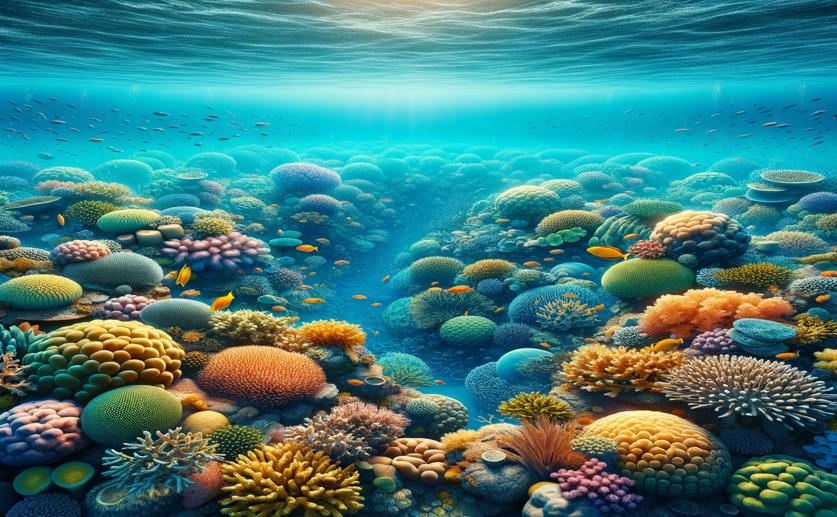
Exploring the Future of Coral Reefs in a Changing Climate
Greg Howard
14th March, 2024

Image Source: Natural Science News, 2024
Key Findings
- A KAUST study found that coral reef climate models may overestimate damage due to limited methods
- Most models used deterministic rules, ignoring the natural variability and uncertainty in coral responses
- The study suggests using probabilistic models and combining multiple models for better predictions
EnvironmentEcologyMarine Biology
References
Main Study
1) Systematic review of the uncertainty of coral reef futures under climate change.
Published 12th March, 2024
https://doi.org/10.1038/s41467-024-46255-2
Related Studies
2) Oceanic differences in coral-bleaching responses to marine heatwaves.
3) Benthic composition changes on coral reefs at global scales.
4) Turbidity shapes shallow Southwestern Atlantic benthic reef communities.
5) Co-occurring anthropogenic stressors reduce the timeframe of environmental viability for the world's coral reefs.



 2nd March, 2024 | Greg Howard
2nd March, 2024 | Greg Howard